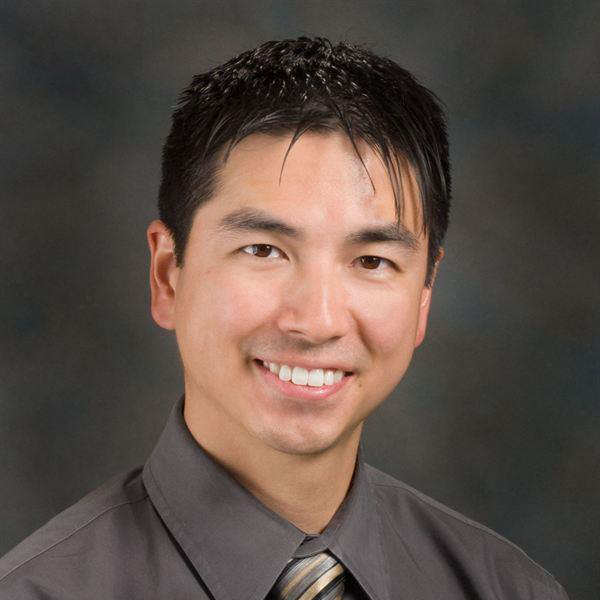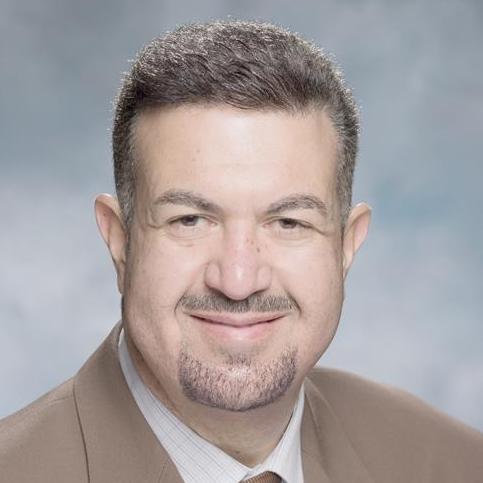Hatim Sabaawy, MD, PhD, MS, associate director of translational research at the University of Colorado Cancer Center, is excited about the future of treatment for pancreatic cancer.
Sabaawy led the recent CU Cancer Center Pancreatic Cancer Retreat, in which cancer researchers from around the country came to the CU Anschutz Medical Campus to learn about new methods of detecting pancreatic cancer early, as well as clinical trials at the CU Cancer Center focused on improving immunotherapy for pancreatic cancer and using new technology to get a more accurate picture of the types of cells that make up a tumor.
|
Learn about how the CU Cancer Center is helping in each of the eight goals of the National Cancer Institute’s National Cancer Plan aimed at changing how we know cancer today. |
“It’s called spatial profiling, which means looking at these tumors in their space,” Sabaawy says. “In that space, there are tumor cells, there are blood vessels, immune cells, macrophages — many different cell types. It used to be that when we did an assay, we would look at it as just a pancreatic tumor, with none of the cells defined. That doesn’t give you an accurate diagnosis. What we can do now, with spatial profiling, is to get better diagnostic assays on the exact molecular architecture of single cells within each tumor so we can design better targeted therapy.”
A shared goal
It’s all part of the CU Cancer Center’s mission to develop effective treatments for patients with cancer. It’s a mission the cancer center shares with the National Cancer Institute (NCI), which made developing effective treatments one of eight goals in its National Cancer Plan. Recently unveiled, the plan outlines goals designed to support the aims of President Joe Biden’s Cancer Moonshot initiative, which proposes to reduce cancer deaths in the U.S. by 50% over the next 25 years.
The NCI’s strategies for developing effective treatments include improving understanding of how cancer develops and spreads and using technology to predict tumor growth. It’s a strategy that Sabaawy, in his leadership role at the CU Cancer Center, fully embraces.
“The future of cancer is all about using technology to provide better care and develop more precise diagnosis, more precise therapies, combination therapies, and ultimately, molecularly driven cancer prevention strategies,” he says. “I have attended several meetings with pharma to see what pipelines are coming from these companies and what trials we could set up to use that technology. It’s going to be all about teamwork, working with other institutes, pharma, and even molecular diagnostic companies to get to that goal of providing better treatments.”
Other NCI goals around effective treatments include conducting research to identify molecules involved in cancer cell growth that could be targeted for treatment; developing new biological and technological approaches to treat rare cancers, treatment-resistant tumors, and childhood cancers; moving promising new treatments from discovery to clinical trials more quickly and ensuring equitable access to all treatments; collecting population-wide data on cancer spread and recurrence to inform treatment discovery and improve clinical care; and developing methods for predicting a patient’s treatment response and long-term outcomes.
Advances in therapy
Chris Lieu, MD, associate director of clinical research at the CU Cancer Center, has seen treatments grow more effective over the past decade, especially those that replace traditional therapies that can come with serious side effects.
“We want to move away from chemotherapy and toward immunotherapy,” he says. “We want drugs that work better against cancer, but we also want drugs that aren’t as toxic as the drugs we’re using now.”
At the CU Cancer Center, much of that work happens in partnership with the nearby Charles C. Gates Biomanufacturing Facility, which creates genetically modified T cells to fight cancer.
“That’s the next frontier: harnessing the immune system to fight cancer more effectively,” Lieu says. “We’re in the early stages of this technology. It has already shown effectiveness in blood cancers like lymphoma, but we haven't made a dent yet in solid tumors. But we’re starting to see studies come through that utilize this technology for all types of cancer.”
Using big data
Lieu is especially pleased to see the NCI’s goal of collecting population data on cancer spread to inform treatment. He sees great potential in using artificial intelligence to find patterns in those big data sets to further refine treatment.
“Is there a way that we can leverage all this data we’ve collected over the past two decades with sequencing cancers and having literally millions of patients to look at?” he says “If we start to combine these big data sets with some of the technologies that we have, we can start to treat patients with more personalized medicine. I think we’ll see kind of an explosion of this type of research over the next decade.”





